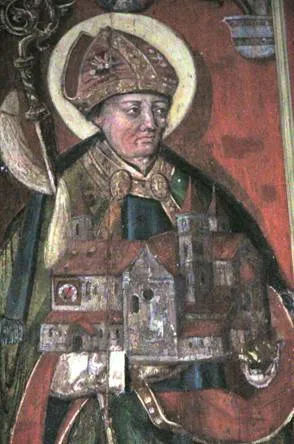
The Legacy of Herulph: An Insight into History’s Lesser-Known Figures
In the annals of history, many figures step into the limelight, while others, such as Herulph, remain in the shadows. This article explores the life and significance of Herulph, shedding light on his contributions and the historical context in which he existed.
Who Was Herulph?
Herulph is often referenced in the study of early medieval Europe, particularly concerning the migration of the Germanic tribes. His name appears in some ancient texts, where he is described as a leader or notable figure among the Heruli, a group that played a significant role in the history of the regions that would later become part of modern-day Germany and Scandinavia.
The Historical Context
The late Roman Empire and the early Middle Ages were marked by a series of migrations and invasions. The Heruli, initially originating in the area around the Baltic Sea, moved southward, clashing with various tribes and the Roman Empire itself. Herulph emerged during a time when these dynamics were shaping the cultural and political landscapes of Europe.
Significance of the Heruli
The Heruli were one of the many Germanic tribes that contributed to the formation of medieval Europe. They are often remembered for their warrior culture and their participation in the downfall of the Western Roman Empire. Herulph, as a representative figure, symbolizes the complexities of tribal alliances and conflicts during this tumultuous period.
Herulph’s Legacy
While historical records provide limited information about Herulph himself, his legacy endures through the tales of the Heruli and their impact on European history. Understanding his role helps historians piece together the societal changes during the migration period.
Cultural Influence
The Heruli contributed not just through military might but also through cultural exchanges, influencing local customs and traditions. Their interactions with the Romans and neighboring tribes facilitated a blend of cultures, leaving an imprint that can still be traced in modern European societies.
The Fall of the Western Roman Empire
Historians note that tribes like the Heruli were pivotal in the events leading to the fall of the Western Roman Empire. As these tribes invaded and settled in Roman territories, they enacted significant changes that impacted governance, culture, and social structures.
Conclusion
Herulph may not be a household name, but his significance as a figure associated with the Heruli cannot be overlooked. The tribal movements of the time serve as a critical reminder of how history is shaped by various actors, including those who may not be widely recognized. As we delve into historical studies, remembering figures like Herulph allows us to appreciate the intricate tapestry of human civilization.






